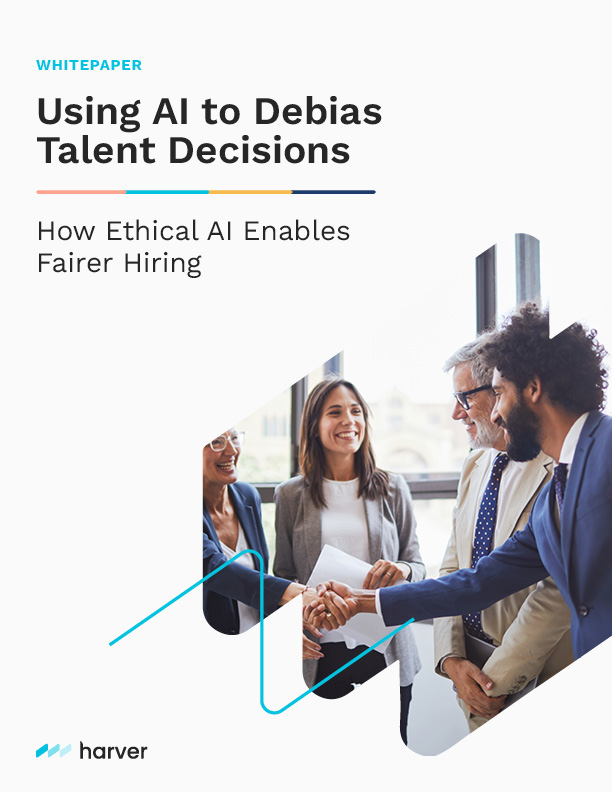The traditional resume has been a cornerstone of the hiring process for decades. But in today’s complex and competitive hiring environment, relying solely on resumes may actually be a hiring mistake hindering your recruitment efforts.
With a document that only scratches the surface of a candidate’s abilities, you risk missing out on top talent and making costly hiring mistakes. Traditional resume sifting isn’t one of 4 proven methods to hire for quality and quantity.
Here are five reasons why it’s time to look beyond the resume. Read on for inspiration on how to adopt a more comprehensive, data-driven approach.
What's in?
1. Resumes Offer a Limited View of Future Potential
A resume typically highlights past experiences, educational qualifications, and job titles.
However, this 500-year-old historical snapshot often fails to reflect a candidate’s potential for success in a new role.
Here’s why resumes don’t give a well-rounded view of candidates:
- Lack of Insight into Soft Skills: Critical attributes like problem-solving ability, adaptability, and emotional intelligence—traits that are often more predictive of long-term success—are difficult to identify.
- No Context for Performance: Resumes rarely tell you how a candidate performed in past roles or how they overcame challenges.
- Static Document in a Dynamic Process: Relying on a resume alone means missing out on assessing a candidate’s willingness and ability to learn new skills and grow within the role.
Bottom Line: Without a deeper understanding of these qualities, recruiters may pass over high-potential candidates who don’t have a conventional background.
2. They’re Prone to Embellishments and Inaccuracies
Resumes are often polished and tailored to match job descriptions. In fact, many candidates admit to embellishing their resumes to appear more qualified.
Common issues with relying on resume screening include:
- Inflated Job Titles and Responsibilities: Candidates might exaggerate their level of responsibility or add skills they’ve only dabbled in.
- Use of Generative AI: With tools like ChatGPT, it’s easier than ever for candidates to craft resumes that match job keywords without reflecting true experience.
- Selective Omissions: Gaps in employment history or omitted roles can hide potential red flags, leaving you with an incomplete picture.
Bottom Line: A candidate’s ability to “game” their resume doesn’t translate to on-the-job success.
FACT: AI can be biased.
ALSO FACT: AI can be debiased. And even help DEBIAS talent decisions.
3. Resumes Can Introduce Unconscious Bias
Studies show that specific elements of traditional resumes can trigger unconscious biases in recruiters, impacting their judgment even before the interview stage.
These common hiring biases include, but are not limited, to:
- Name or Location Bias: Certain names or regions can evoke stereotypes that unfairly influence candidate evaluation.
- School and Employer Bias: Bias toward candidates from prestigious schools or well-known companies may cause recruiters to overlook equally qualified candidates from less traditional backgrounds.
- Affinity Bias: Recruiters might favor candidates with similar experiences, interests, or demographics, which can result in a homogenous workforce that lacks diversity and creativity.
Bottom Line: Removing identifiers or using blind resume reviews are partial solutions, but they don’t address the root issue: overreliance on an inherently biased document.
4. They Don’t Capture Soft Skills or Cultural Fit
Understanding a candidate’s soft skills and how they align with your company’s culture is crucial to making successful hires. Resumes fail to provide the following key factors:
- Insight into Communication Skills: Traits like active listening, empathy, and conflict resolution, which are critical in many roles, can’t be assessed from a resume.
- View of Team Dynamics: Does the candidate work well with others? Do they have leadership potential? Resumes offer no insight into a candidate’s ability to integrate into your company’s culture.
- Cultural Alignment: If your company values innovation or collaboration, a resume won’t tell you if the candidate’s style fits into that environment.
Bottom Line: Companies may end up with employees who have the right technical skills but struggle to integrate into the team or the company culture, ultimately impacting long-term retention.
Like what you see?
Don’t miss out. Subscribe to our quarterly digest to get the latest TA and TM resources delivered right to your inbox.
5. Reviewing Resumes is Labor-Intensive and Inefficient
In high-volume hiring scenarios, recruiters can spend hours sifting through resumes, leading to several inefficiencies:
- Time-Consuming Process: Screening resumes manually takes significant time and effort, especially for recruiters dealing with large applicant volumes.
- Subjectivity Creeps In: With limited time, recruiters may make snap judgments based on superficial elements, resulting in inconsistent evaluations.
- Transactional Sacrifices Strategic: Time spent on resume reviews could be better spent engaging with top candidates or refining your hiring strategy.
Bottom Line: With limited time and resources, subjective decision-making creeps in, leading to missed opportunities and suboptimal hiring decisions.
The Solution to Resume Screening As Your Hiring Mistake
To overcome these limitations, companies are turning to scientifically validated assessments that offer a holistic and rigorous view of a candidate’s capabilities.
By leveraging data-driven evaluations, recruiters can make more informed, objective hiring decisions—reducing bias, improving quality of hire, and ensuring long-term success.
Ready to break free from the limitations of traditional hiring? Boost your quality of hire and recruiter efficiency by reading our whitepaper 4 Proven Methods to Hire for Quantity and Quality.



